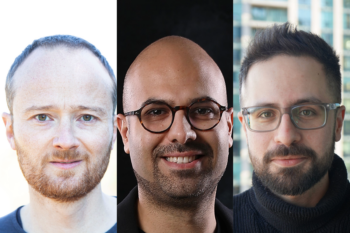University of Toronto professor Michael Sefton (ChemE, IBBME) has been presented with a major research award from international diabetes foundation JDRF to advance treatment research for type 1 diabetes (T1D).
The funding, valued at approximately $1.1 million ($845,135 USD), supports a three-year study at the University of Toronto’s Institute of Biomaterials & Biomedical Engineering (IBBME) to explore an experimental treatment that involves transplanting healthy pancreatic cells into patients living with the disease. Once successfully implanted, these cells can then produce insulin to help regulate blood glucose levels.
Though promising, these cells — known as pancreatic islet cells— are fragile, and current transplantation sites such as the abdominal cavity and liver are “hostile” environments that can increase the likelihood of rejection.
Sefton and his team are investigating whether transplanting islet cells under the skin will improve the cells’ survival.
“The skin is a less hostile site for islets and has clinical advantages of being more accessible than current sites and possibly be even safer for patients,” said Sefton, who holds appointments in U of T’s Department of Chemical Engineering & Applied Chemistry and IBBME. “However, one of the challenges of using the skin as a transplant site is that it has relatively few blood vessels.”
Sefton, a world-renowned tissue engineering pioneer, plans to apply his team’s expertise to creating a “‘pre-vascularized” environment rich in blood vessels under the skin to ensure the survival of the insulin-producing cells before transplantation takes place.
“The goal is to enable islet cell transplantation under the skin in a retrievable, ‘device-less,’ physiologically integrated, and scalable implant site,” said Sefton. “The goal of this strategy is better control of blood glucose and reduced complications, leading to more widely available treatment for those living with this disease.”
“Islet transplantation is a promising approach to treatment that also minimizes the risk of serious complications that affect those who live with T1D,” said Dave Prowten, president and CEO of JDRF Canada. “We are proud to support Dr. Sefton and his team as they work to uncover new ways to make this treatment more readily available for people living with T1D.”



